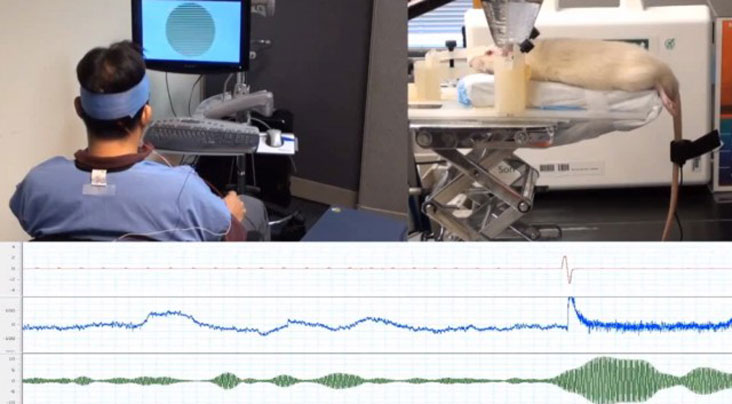Via Activist Post
Every day seems to bring new revelations in the area of neuroscience. Based on the recent whistleblower release of a secret DARPA mind control program at Arizona State University, and the subsequent takedown of those documents, it appears that ethical concerns in this field are indeed justified.
Obama’s BRAIN project appears to being paying dividends, as other recently leaked documents reveal a “nudge squad” program being developed to employ new, sophisticated narrative propaganda aimed at “shaping Americans’ behavior.”
Just in the past few weeks, we have also learned that scientists have been working on “neural dust” to create a remote-controlled computer pathway to the brain; and that scientists have been successful implanting false memories in mice.
Yes, the age of direct mind control is here.
Experiments in controlling gadgets and even drones have also been successful. So what’s the next logical step?
How about controlling other living beings by thought alone.
Researchers at Harvard University have created the first noninvasive brain-to-brain interface (BBI) between a human ? and a rat. Simply by thinking the appropriate thought, the BBI allows the human to control the rat?s tail. This is one of the most important steps towards BBIs that allow for telepathic links between two or more humans ? which is a good thing in the case of friends and family, but terrifying if you stop to think about the nefarious possibilities of a fascist dictatorship with mind control tech.
Interesting to note is that once again ultrasound is employed in this method of control. This is exactly what has been discussed within the secret paper at Arizona State University, as well as the method used via neural dust:
…the mouse is equipped with a focused ultrasound (FUS) computer-brain interface (CBI). FUS is a relatively new technology that allows the researchers to excite a very specific region of neurons in the rat?s brain using an ultrasound signal. The main advantage of FUS is that, unlike most brain-stimulation techniques, such as DBS, it isn?t invasive. (emphasis added).
So, unlike the clumsier methods shown in videos of Transcranial Magnetic Stimulation, this is the new remote-control upgrade. Still in the remedial phase of motor control, there is no lack of will to go the next level:
Moving forward, the researchers now need to work on the transmitting of more complex ideas, such as hunger or sexual arousal, from human to rat. At some point, they?ll also have to put the FUS CBI on a human, to see if thoughts can be transferred in the opposite direction.
So, there you have it: a tacit admission that human mind control at a distance is a near-term goal. And it seems that the only ethical concerns being raised are from whistleblowers and the alternative media, not from the educational institutions funded by the public.
Here is the paper from Harvard:
http://www.plosone.org/article/info:doi/10.1371/journal.pone.0060410
[vsw id=”VaJjHgyHnEc#at=40″ source=”youtube” width=”707″ height=”398″ autoplay=”no”]





1 hozzászólás